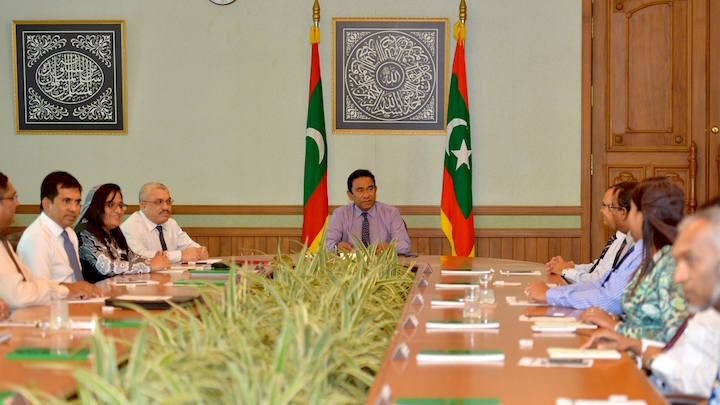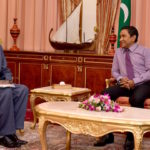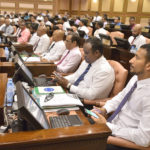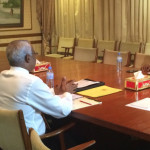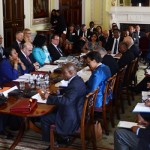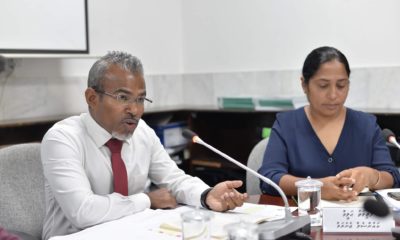The Maldives has quit the Commonwealth after accusing the intergovernmental organisation of undermining sovereignty and independence, interfering in domestic affairs, and treating the country “unfairly and unjustly.”
The move comes after the Commonwealth’s democracy watchdog placed the Maldives on its formal agenda in late September. The Commonwealth Ministerial Action Group also warned of suspension if steps are not taken by March 2017 to resolve a protracted political crisis triggered by the jailing of opposition leaders last year.
Briefing the press at the president’s office this afternoon, Foreign Minister Dr Mohamed Asim described the decision as “difficult but necessary”.
Asim said in a prepared statement: “The CMAG and the Commonwealth Secretariat seem to be convinced that the Maldives, because of the high and favourable reputation that the country enjoys internationally, and also perhaps because it is a small state that lacks material power, would be an easy object that can be used, especially in the name of democracy promotion, to increase the organisation’s own relevance and leverage in international politics.”
Attorney General Mohamed Anil said the cabinet advised President Abdulla Yameen to end the Maldives’ 34-year membership of the group. The decision will be conveyed to the Commonwealth today.
The Maldives was also placed on the CMAG agenda after former President Mohamed Nasheed’s ouster in February 2012, Anil noted, but a Commonwealth-backed commission of national inquiry concluded eight months later that the transfer of power was constitutional.
“But by then the damage was done to the Maldives’ economy as well as socially and politically,” he said.
The government engaged constructively with the CMAG and welcomed delegations, Anil continued, but Commonwealth officials were “attempting to exert influence on decisions made by the country’s courts.”
The release of jailed politicians, including former President Nasheed, and dialogue with opposition parties were among six priority areas outlined by the CMAG in February.
Citing unnamed reports by international groups, Anil went on to say that the situation in the Maldives is “far better” than other countries in the Commonwealth.
The exit was forced upon the Maldives due to the “discriminatory” and “unjust” treatment in violation of due process, he contended.
He also blamed the opposition for the lack of progress in starting official talks. Earlier this week, the allied opposition parties accused the government of attempting to scuttle the talks by imposing preconditions.
Foreign Minister Asim meanwhile assured that the Maldives will continue to engage with countries and organisations such as the UN that respect the country’s sovereignty.
But the Maldives could face adverse effects if the opposition “exploits” the decision in its international lobbying efforts, Anil said.
Anil and Asim refused to answer questions about losing Commonwealth scholarships and potential difficulties Maldives could face in securing visas.
The pair also insisted that foreign assistance and tourist arrivals will not decline due to the exit.
Yameen had previously sought parliament’s counsel on the country’s membership of the Commonwealth following lobbying efforts in the wake of Nasheed’s imprisonment on a terror charge in March last year.
Yameen said after the CMAG’s meeting in February that the Maldives avoided punitive action because India and Pakistan “spoke in our defence”. Ahead of its follow-up meeting in April, he also sought the Malaysian government’s help to avoid “unfair punishment” and dispatched ministers to Pakistan and the Solomon Islands.

